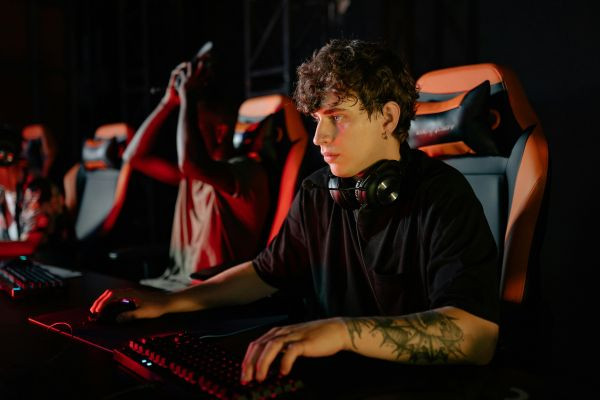The collaboration between game studios and Hollywood has developed with time to become a vibrant, mutual partnership for both parties.
01/03/25 • 303 Views
The collaboration between game studios and Hollywood has developed with time to become a vibrant, mutual partnership for both parties. From a mere exchange of ideas here and there, this relationship has evolved into collaborative ventures that blend cinematic storytelling with interactive entertainment. These collaborations have brought about blockbuster video game adaptations, star-studded voice acting, and immersive transmedia experiences captivating audiences across the globe.
The Rise of Game Adaptations
One of the most popular areas where game development studios collaborate with Hollywood is adaptations. Games like The Last of Us, Uncharted, and Tomb Raider are being adapted to movies and a series, where the results seem to be inconsistent. Studios keep working closely with Hollywood to create something that truly represents the source material while taking it to an audience that extends beyond the niche.
The recent trend towards quality storytelling in games has made this transition easier. For instance, HBO's The Last of Us series was faithful to the game's emotional core and received critical acclaim. This level of collaboration often involves the game's creators acting as consultants or executive producers to maintain authenticity.
Hollywood Stars in Gaming
Game studios are tapping into Hollywood talent for voice acting, motion capture, and other promotional purposes. A-list actors such as Keanu Reeves in Cyberpunk 2077, Norman Reedus in Death Stranding, and Kit Harington in Call of Duty: Infinite Warfare brought their star power to video games.
Using Hollywood actors allows for better storytelling and attracts other players who enjoy the work the actors have previously done. Technology in motion capture allows these players to bring out their characters so vividly as if they are performing on a film set. This further stretches the boundaries of the two art forms.
Transmedia Storytelling
Collaborations between game studios and Hollywood often extend beyond individual projects, creating expansive universes that span games, films, comics, and more. For example, the Assassin's Creed franchise has explored its lore through novels, comics, and a feature film, giving fans multiple entry points into its world.
This transmedia approach increases the wealth of the narrative experience, for audiences to venture deeper into the characters and settings. To Hollywood, it becomes an advantageous stream of content creation, while game studios enjoy more visibility and engagement.
Shared Technology and Expertise
Game studios and Hollywood increasingly share technology to enhance their storytelling capabilities. Advanced motion capture, photorealistic graphics, and real-time rendering techniques have revolutionized both industries.
Epic Games' Unreal Engine, designed for video games, is today a Hollywood standard. It has been used in the series The Mandalorian to create a virtual environment so immersive that the cross-pollination of technology is visible.
Challenges in Collaboration
Despite the good news, however, there remain many challenges. Most game adaptations suffer from not sticking closely enough to the original, and sometimes a Hollywood actor's presence fails to translate on-screen to game.
Creative compatibility and balancing audiences' expectations are only ongoing challenges for producers.
Bright Future
The association between game developers and Hollywood is expected to keep deepening with technology and storytelling continuing to merge. As the world witnesses more interactive filmmaking and immersive virtual reality, there is a merging between the two more fluid lines defining gaming and cinema.
In the end, these collaborations enrich both mediums, giving audiences innovative narratives that transcend traditional entertainment formats. The alliance between Hollywood and gaming is no longer a trend but a cornerstone of modern storytelling.









